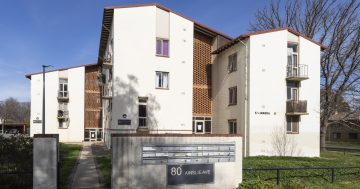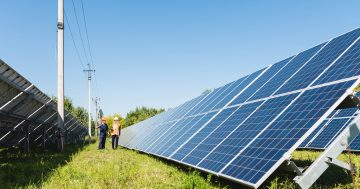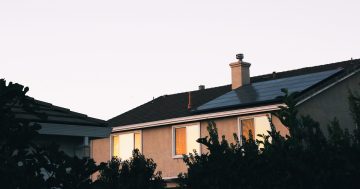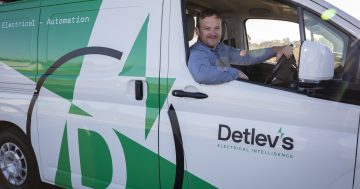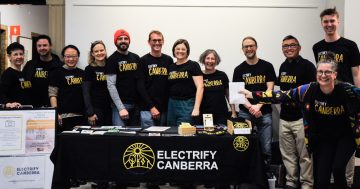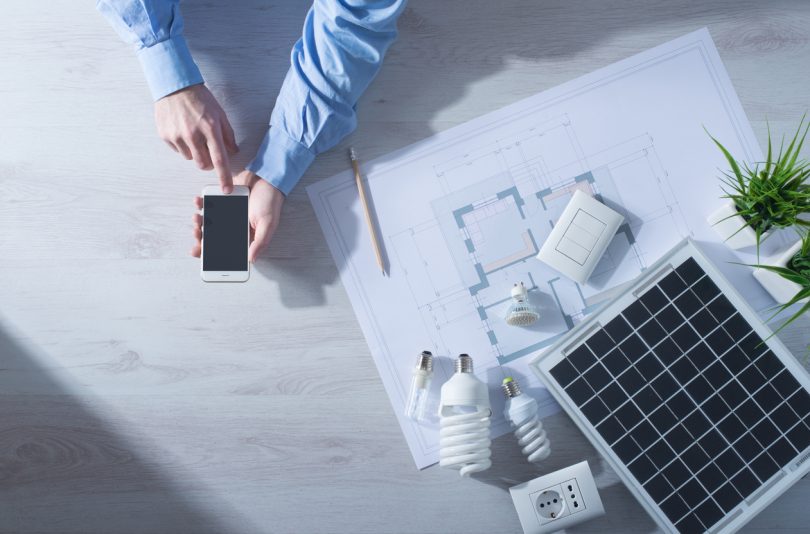
A few small changes can help to improve the energy efficiency of your home and business. Photo: File.
When it comes to the topic of energy, the capital region has a long standing commitment to a cleaner and greener future. So steadfast is our dedication, that the ACT Government is working towards a goal of net zero emissions by 2045 – part of their ACT Climate Change Strategy.
While our desire for renewables remains high, so too does its affordability – so what steps can be taken to reduce your energy use?
Energy saving tips for households
According to the Australian Energy Regulator, the typical Canberra household uses an average of 6400 kWh of energy a year, but there are smart ways to reduce these costs.
- Reassess your plan. If your consumption habits have recently changed assess your plan. New family additions or more time at home can contribute to your running costs. Similarly, if you have solar panels or an electric vehicle charging station there may be a better plan for you. Many retailers like ActewAGL offer a variety of plans tailored to your needs.
- Invest in efficient appliances. Although energy efficient appliances may cost more to purchase, they tend to yield savings long term. The best way to assess an appliance is by its energy rating, with the most efficient sitting at four to six stars. As for existing appliances, small tweaks like utilising in-built timers or only using your dishwasher or washing machine when it’s full may support you to use only the energy you need.
- Consider your climate. For most ACT households heating and cooling make up the majority of your energy bill. To minimise the cost, heat or cool the smallest area possible by closing off unneeded space, such as bedrooms or bathrooms. During summer, opt for fans, as they can be cheaper to run. If air-conditioning is needed, cool to the warmest temperature comfortable, usually between 25 and 27 degrees. And in winter, aim for 18 to 20 degrees. Why? Because each degree change adds about 10% to running costs.
- Be hot water humble. Hot water is another big energy zapper, but there are a few ways to reduce its use. Yes, taking showers under five minutes is one of them, along with replacing inefficient shower heads. Also opt for washing clothes in cold water only, and keep mixers at the cold setting. Finally, reduce the temperature of your hot water system altogether. For storage tanks aim for 60 degrees, and 50 degrees for instantaneous systems.
- Insulate well. A well-insulated home slows the transfer of hot or cold air, thus reducing reliance on heating and cooling appliances. External additions like outdoor awnings, pergolas, or shade sails, shield the home from the summer sun. Conversely, internal blinds or curtains help to slow heat seepage in winter. While you think of it, address little leaks around doors and windows – up to 25% of heat loss is attributable to draughts, so it pays to fix it.
- Turn it off at the wall. Interestingly, standby power can account for more than 10% of a typical household’s electricity use. To reduce costs, turn off any appliances not in use directly at the power switch. Moreover, consider using power-saving options on devices along with timer switches that switch them off at set intervals.
Energy saving tips for businesses
With a bit of planning and commitment there are many ways to conserve energy in the workplace.
- Invest in efficient technology. Most businesses are heavily reliant on electrically powered technology. To decrease running costs consider investing in energy efficient equipment. Offering up to two thirds energy savings, energy efficient devices and appliances are a great choice. Laptops for example, consume about 80% less energy than desktops; and inkjet printers up to 90% less than their laser counterparts.
- Improve illumination. A well light workplace is essential, and one of the easiest ways to achieve it is to embrace natural light. Optimise workspaces around windows to reduce reliance on artificial light. When using artificial light, consider switching to energy efficient options. LEDs for instance, use up to 75% less energy than incandescent or fluorescent bulbs. And, for less frequented areas, motion sensors are helpful too.
- Optimise heating and cooling. If your current climate system isn’t up to scratch, now may be a good time to invest in something new. Consider replacing with an energy efficient system designed to suit your needs. Including an energy management system with this can maximise efficiency. Reference optimum seasonal temperature settings and remember to properly maintain all system components.
- Enhance insulation. Insulation does wonders by reducing energy reliance, and subsequently lowering costs. Simple steps like adding internal or external blinds can help cool a workplace in summer, while also retaining heat in winter. Finally, consider whether current ceiling or wall insulation is sufficient, and install or upgrade accordingly.
- Switch to solar. The long-term savings afforded by solar farming is heavily documented the world over – with Australia boasting some of the best solar conditions in the world. For businesses, solar panels are a fantastic way to reduce reliance on grid power whilst lowering operating costs. To investigate solar options for your business, contact a local energy retailer such as ActewAGL. And, to explore available solar rebates or discounts, visit energy.gov.au.
- Promote sustainability. A great way reduce energy consumption is to foster a culture of sustainability. Initiatives could include small changes like printing only when necessary or turning off unused devices. They can also include broader goals, like offsetting energy use. Either way, benefits of promoting a sustainable culture go further than improving the bottom line which is a win-win.
- Ask an expert. Whether you’re at the beginning of your energy saving journey or looking for ways to operate more efficiently, seeking expert advice specific to your needs can go a long way. By arranging an onsite energy efficiency audit, you’ll be able to identify opportunities for your business to reduce its energy consumption. If you’ve been thinking about the potential of electric vehicles or solar for your business, but you’re not sure where to start, an energy expert can advise on this too.
Where to find more information on saving energy
For more information on saving energy, visit ActewAGL. For other practical energy management advice, visit energy.gov.au. For information on rebates and subsidies visit ACT actsmart.













